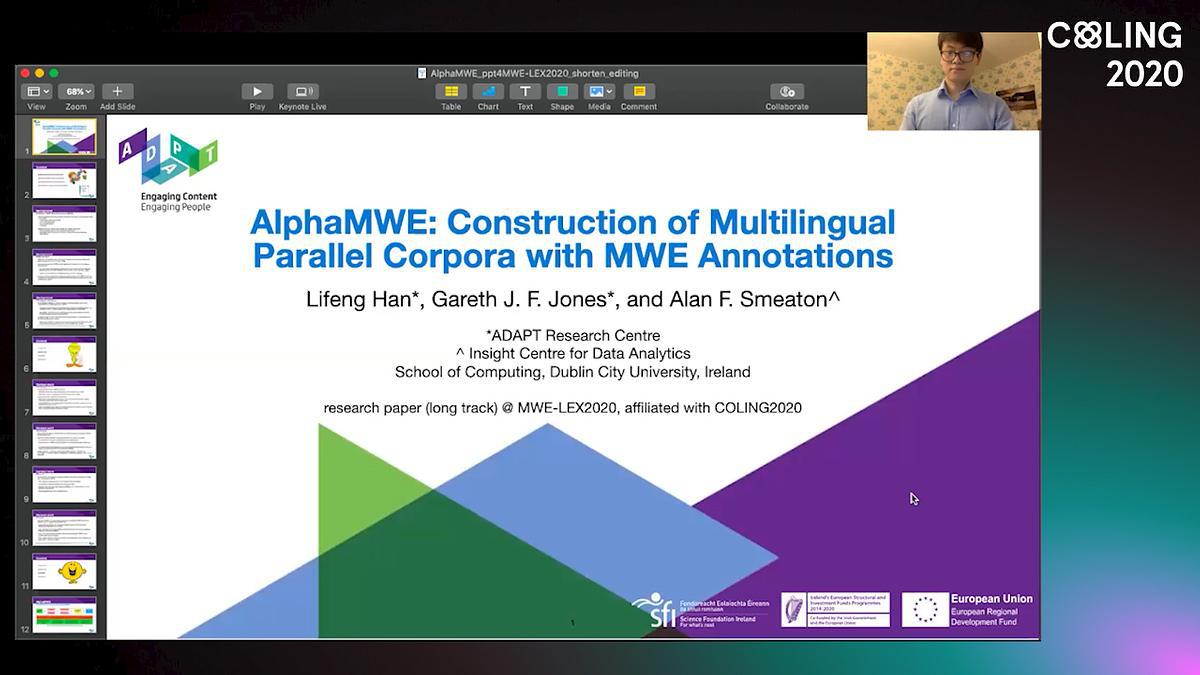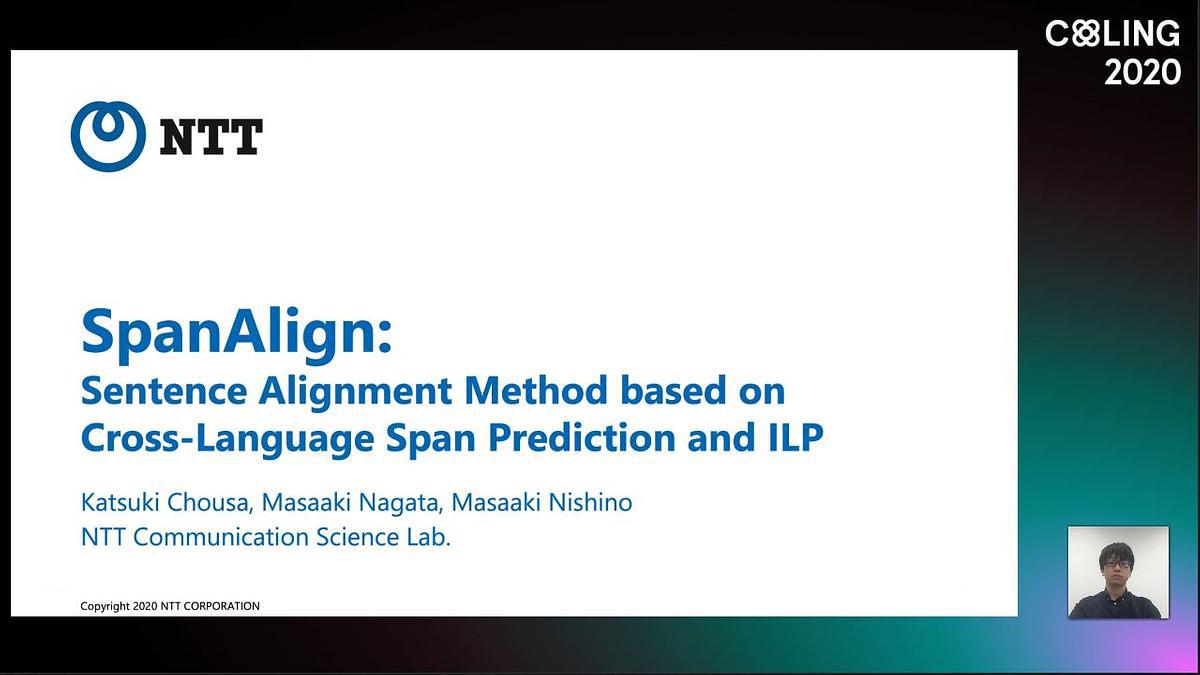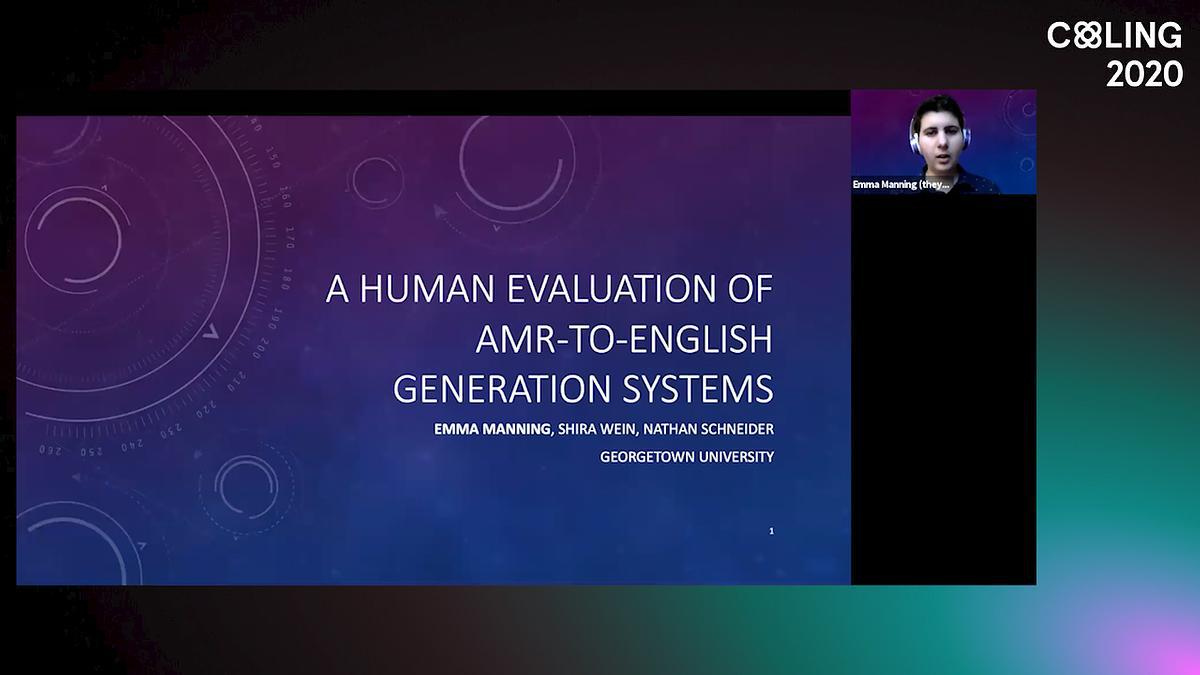Abstract:
Systems that generate natural language text from abstract meaning representations such as AMR are typically evaluated using automatic surface matching metrics that compare the generated texts to reference texts from which the input meaning representations were constructed. We show that besides well-known issues from which such metrics suffer, an additional problem arises when applying these metrics for AMR-to-text evaluation, since an abstract meaning representation allows for numerous surface realizations. In this work we aim to alleviate these issues by proposing <span class="tex-math">ℳℱ𝛽</span>, a decomposable metric that builds on two pillars. The first is the <b>principle of meaning preservation <span class="tex-math">ℳ</span> </b>: it measures to what extent a given AMR can be reconstructed from the generated sentence using SOTA AMR parsers and applying (fine-grained) AMR evaluation metrics to measure the distance between the original and the reconstructed AMR. The second pillar builds on a <b>principle of (grammatical) form <span class="tex-math">ℱ</span></b> that measures the linguistic quality of the generated text, which we implement using SOTA language models. In two extensive pilot studies we show that fulfillment of both principles offers benefits for AMR-to-text evaluation, including explainability of scores. Since <span class="tex-math">ℳℱ𝛽</span> does not necessarily rely on gold AMRs, it may extend to other text generation tasks.









































